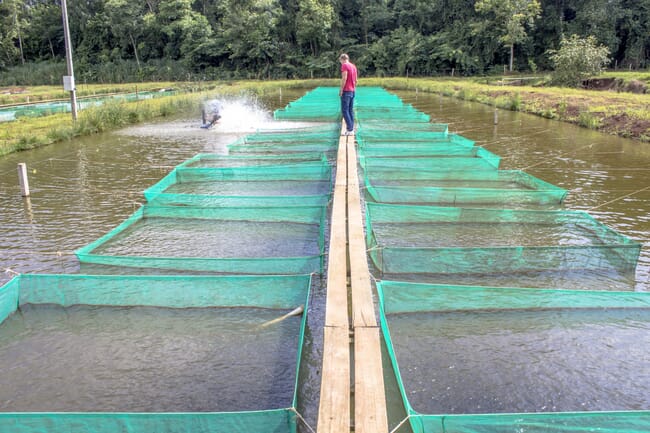
© Alf Ribeiro, Shutterstock
According to Leopoldina, freshwater aquaculture offers a highly promising, resource-efficient and environmentally friendly way to produce animal protein. ‘’It has the potential to make a significant contribution to global food security while reducing the pressure on wild ecosystems,‘‘ the authors wrote.
The joint report, developed in collaboration with the Brazilian Academy of Sciences (ABC), outlines what sustainable and circular aquaculture could look like in both countries. It also provides concrete recommendations for policy-makers, regulators and researchers.
Despite favourable geographic and climate conditions, both countries remain well below the global average for fish consumption - approximately 10 kilogrammes per capita in Brazil and 14 kilogrammes in Germany, compared to a global average of 20.5 kilogrammes. Brazil continues to rely heavily on imports, while Germany’s domestic aquaculture production is in decline, supplying just 2 percent of its finfish consumption.
To realise the sector’s potential, the report identifies three key priorities:
- Streamline regulations – Simplify and coordinate approval processes and appoint dedicated “Aquaculture Officers” within relevant agencies.
- Attract and train skilled professionals – Expand vocational and university-level training in sustainable aquaculture practices.
- Bridge research and practice – Improve technology transfer by developing locally adapted solutions that consider fish species, production systems, and waste management.
The report was developed by an interdisciplinary group of emerging scientists from Brazil and Europe as part of the workshop ‘Sustainable Aquaculture – Environmental Impacts and Food Security’, held at the Leibniz Institute of Freshwater Ecology and Inland Fisheries in Berlin in October 2023. The event was organised by the Leopoldina and the ABC with the aim of combining international scientific expertise to jointly shape a vision for the future of sustainable aquaculture.


